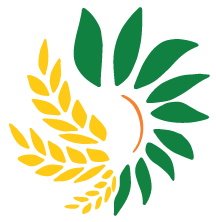Banana Tissue Culture
What is a Banana?
A Banana is an edible fruit – botanically a berry – produced by several kinds of large herbaceous flowering plants in the genus Musa. The fruit is variable in size, color, and firmness, but is usually elongated and curved, with soft flesh rich in starch covered with a rind, which may be green, yellow, red, purple, or brown when ripe. The fruits grow in clusters hanging from the top of the plant.
Banana trees are tropical and hail from rainforests, they need a lot of water and plenty of moisture in the air. Being close together helps them retain moisture in the leaves. The soil should be well-drained, deep, and organically amended. Slightly acidic soil (5.5 to 6.5 pH) is preferred.
Total annual world production is estimated at 86 million tonnes of fruits. India leads the world in banana production with an annual output of about 14.2 million tonnes.
Why Bananas?
Banana is the second most important fruit crop in India next to mango. Its year round availability, affordability, varietal range, taste, nutritive and medicinal value makes it the favourite fruit among all classes of people. It also has good export potential.
Banana is a rich source of carbohydrates and vitamins, particularly vitamin B. It’s also a good source of potassium, phosphorus, calcium and magnesium. The fruit is easy to digest, free from fat and cholesterol. It helps in reducing heart disease risk when consumed regularly and is recommended for high blood pressure, arthritis, ulcers, gastroenteritis and kidney disorders.
Processed products like chips, banana puree, jam, juice, wine and halwa can be made from the fruit. The tender stems, which bear the inflorescence are extracted by removing the leaf sheaths of the harvested pseudostems and are used as vegetables. Plantains are rich in starch and have a chemical composition similar to potatoes.
Banana fibre is used to make items like bags, pots and wall hangers. Rope and good quality paper can be prepared from banana waste. Banana leaves are used as healthy and hygienic eating plates.
Planting Time of Banana Tissue Culture:
Tissue culture banana cultivation can be done throughout the year except when the temperature is too low or too high. Presence of a drip irrigation system is important.
There are two important seasons in Maharashtra:
- Mrig Baug (Kharif) Month of planting June – July.
- Kande Baug (Rabi) Month of planting October – November.
However due to the availability of quality planting material, round the year planting is recommended except during very hot temperatures in summer.
Transplanting Banana Tissue Culture:
After growing for 8 to 12 weeks in a secondary banana plants nursery, they should be transplanted to the main field. There is no need to cut back the pseudo-stem (the part that looks like a trunk) for tissue culture banana plants in polybags.
Care of Banana Tissue Culture Plants:
As we already mentioned, tissue culture banana plants are disease free at the time planting. The banana crop can be grown without any pest or disease incidents with good crop management practices. To avoid any pest or disease incidents after planting, you can apply 400 to 450 grams of Neem cake along with pit mixture before transplanting in the field. Neem oil or Panchagavya solution can be applied in the second and third month of crop stage.
We at Hybrid Agri help to develop the plants in sterile containers for its easy movement and also to protect it from pests and diseases. Tissue culture bananas from Hybrid Agri also mature quickly giving you a swift and wholesome yield.
We produce the Grand Naine and Elakki varieties of bananas. Grown plants are sold in polybags or in jiffy plugs. Jiffy plugs are lightweight and can be easily transported even in carton boxes for longer distances. Hybrid Agri being one of India’s best tissue culture banana suppliers will surely help you maximize your profits from your fields.


 WhatsApp us
WhatsApp us